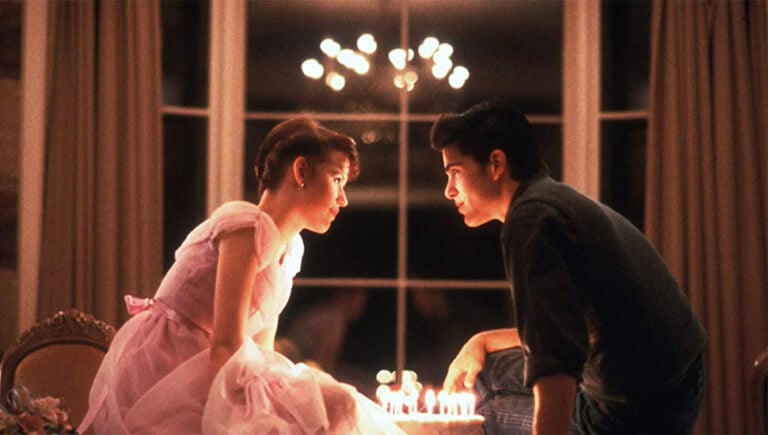The 1980s classic film Sixteen Candles originally had a “pervy” line that Molly Ringwald’s on-screen dad changed, because it made the actors and Ringwald’s mother uncomfortable.
In his memoir, Movie Dad: Finding Myself and my Family, On Screen and Off, actor Paul Dooley – who played Ringwald’s father in the film – recalled the scene in which then 15-year-old Ringwald and Dooley’s characters had a heart to heart conversation.
“Near the end of their talk, the script had the dad giving a friendly pat on his daughter’s behind while saying, ‘Where the heck are your panties?’” Dooley wrote. “A pat on the behind? If you can detect missing panties, that’s more like copping a feel.”
The line didn’t sit well with Dooley or with Ringwald’s real-life mother, who asked what could be done about it.
“I would have the dad say, ‘When you finally meet your Mr. Right, make sure he knows you wear the pants in the family,’” Dooley wrote.
Although the line was innocent, it had a loaded meaning as the audience already knew that Ringwald’s character Sam gave a boy her underwear.
“Molly’s mom loved it,” Dooley wrote. “We took it to [director] John Hughes, who liked it too. That became the ending to the scene.”
Ringwald has previously spoken about her discomfort with some of the scenes in Sixteen Candles and her other Hughes-directed films, The Breakfast Club and Pretty in Pink.
“Times were different and what was acceptable then is definitely not acceptable now and nor should it have been then, but that’s sort of the way that it was,” Ringwald told NPR in 2018.
“I mean, there were parts of that film that bothered me then,” she said. “And, you know, you don’t want to speak up too much. You don’t want to cross the line. Or at least that’s the way that I felt at the time.”
Ringwald also wrote a piece for The New Yorker about viewing these films through a modern lens in the wake of #MeToo.
“If attitudes toward female subjugation are systemic, and I believe that they are, it stands to reason that the art we consume and sanction plays some part in reinforcing those same attitudes,” she wrote.


































